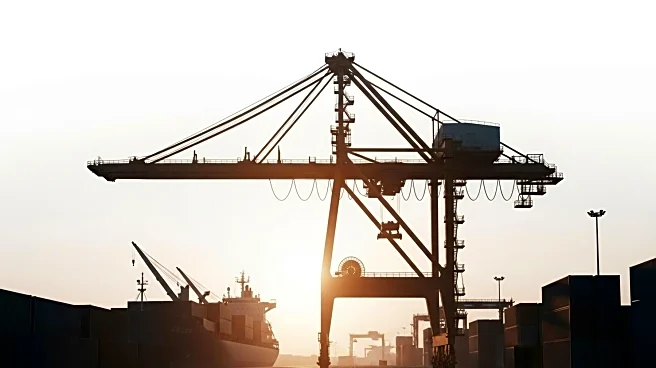What's Happening?
The United States Trade Representative (USTR) has proposed modifications to the Section 301 fee program, which is set to launch for Chinese-owned, operated, or built ships. These changes are in response to comments received on the program, particularly affecting the car carrier segment and port equipment. The proposal includes raising the fee for car carriers from $14 per net ton to $46 per net ton, based on feedback that the previous fee was insufficient to address China's policies. Additionally, exemptions for certain ethane and liquified petroleum gas carriers are proposed, while exemptions for Chinese-built 'Lakers' are removed. The USTR is also considering an exemption for vessels in the Maritime Security Program, with a provision set to expire in 2029 unless extended.
Why It's Important?
These proposed changes by the USTR could significantly impact the shipping industry, particularly car carriers and port equipment manufacturers. The increase in fees aims to pressure China to alter its trade practices, but it may also affect U.S. businesses relying on foreign-built carriers. The removal of exemptions for certain vessels could lead to increased operational costs for shipping companies, potentially affecting the pricing of goods transported. The proposal to increase tariffs on cargo handling equipment could further strain port operations, as there are limited domestic manufacturing options for such equipment.
What's Next?
The USTR has opened a new comment period for the proposed changes, running through November 12. Stakeholders, including shipping companies and port authorities, are expected to review and provide feedback on the modifications. The USTR will continue to monitor the situation, particularly the availability of U.S.-flagged vessels, and may adjust the program based on industry responses. China's announcement of a reciprocal program for U.S.-owned or flagged vessels could lead to further trade tensions and negotiations.










